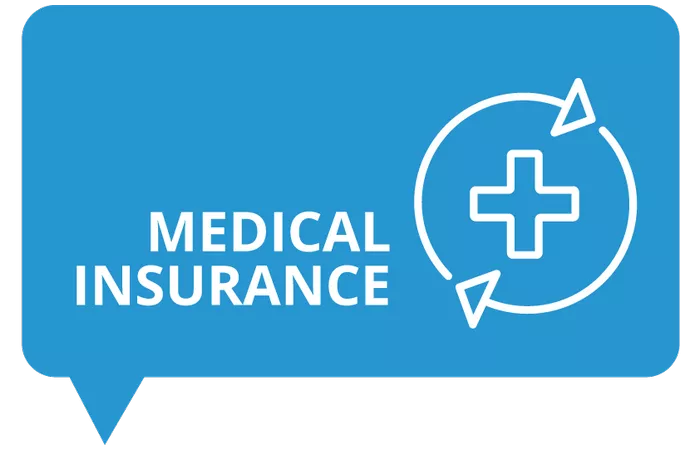In an ideal world, everyone would have access to comprehensive medical insurance coverage, ensuring that healthcare needs are met without financial strain. However, the reality is far from perfect, and many individuals find themselves without medical insurance for various reasons. Whether due to financial constraints, employment status, or other circumstances, navigating the healthcare system without insurance can be daunting. In this article, we’ll explore the challenges and options available for those who find themselves without medical coverage.
Understanding the Challenges
The absence of medical insurance presents a myriad of challenges when it comes to accessing healthcare services. Without insurance, individuals may face:
1. Financial Barriers: The most immediate challenge is the cost of healthcare services. Without insurance to help cover medical expenses, individuals may be responsible for paying the full cost out of pocket, which can be prohibitively expensive, especially for major procedures or treatments.
2. Limited Access to Care: Some healthcare providers may require insurance coverage or upfront payment before providing services, leading to limited access for uninsured individuals. This can result in delays in seeking necessary medical care, potentially exacerbating health conditions.
3. Lack of Preventive Care: Medical insurance often covers preventive services such as vaccinations, screenings, and regular check-ups. Without access to these services, individuals may miss out on essential preventive care, increasing the risk of undetected health issues.
4. Risk of Financial Hardship: A medical emergency or serious illness can quickly lead to financial hardship for those without insurance. High medical bills can result in debt, bankruptcy, or the depletion of savings, creating long-term financial consequences.
Exploring Options
While navigating the healthcare system without insurance can be challenging, there are options available to help mitigate the impact and access necessary care:
1. Community Health Centers: Federally funded community health centers provide primary care services to underserved populations, including those without insurance. These centers offer affordable or sliding-scale fees based on income and may provide services such as primary care, dental care, and mental health services.
2. Free and Low-Cost Clinics: Many communities have free or low-cost clinics that offer basic medical services to uninsured individuals. These clinics are often run by nonprofit organizations, religious institutions, or local government agencies and may provide services on a sliding fee scale or at no cost.
3. Charity Care Programs: Some hospitals and healthcare facilities offer charity care programs to help uninsured individuals access necessary medical treatment. These programs may provide discounted or free care to eligible patients based on financial need.
4. Health Savings Accounts (HSAs): For those who can afford to set aside money for healthcare expenses, health savings accounts (HSAs) offer a tax-advantaged way to save for medical costs. Contributions to HSAs are tax-deductible, and funds can be used to pay for qualified medical expenses, including doctor visits, prescriptions, and medical supplies.
5. Negotiating Medical Bills: In some cases, healthcare providers may be willing to negotiate medical bills or offer payment plans for uninsured patients. It’s essential to communicate openly with providers about financial concerns and explore options for reducing costs.
6. Government Assistance Programs: Depending on eligibility criteria and income level, uninsured individuals may qualify for government assistance programs such as Medicaid, CHIP (Children’s Health Insurance Program), or subsidies through the Affordable Care Act’s Health Insurance Marketplace. These programs can provide access to affordable or no-cost health insurance coverage.
Prioritizing Preventive Care and Wellness
In addition to addressing immediate healthcare needs, it’s essential for uninsured individuals to prioritize preventive care and wellness strategies to maintain their health and well-being:
1. Healthy Lifestyle Choices: Adopting healthy lifestyle habits such as regular exercise, balanced nutrition, adequate sleep, and stress management can help prevent chronic health conditions and reduce the need for medical interventions.
2. Seeking Low-Cost Resources: Take advantage of low-cost or free resources for preventive care, such as community health fairs, wellness workshops, and educational programs offered by local organizations.
3. Utilizing Telemedicine Services: Telemedicine platforms offer virtual consultations with healthcare providers, often at a lower cost than traditional in-person visits. These services can be a convenient and affordable option for accessing medical advice and treatment for minor ailments.
4. Exploring Alternative Therapies: Consider alternative therapies and holistic approaches to health and wellness, such as acupuncture, chiropractic care, and herbal medicine, which may offer cost-effective solutions for managing health issues.
Conclusion
While navigating the healthcare system without medical insurance presents significant challenges, it’s essential to explore available options and resources for accessing necessary care. From community health centers and free clinics to government assistance programs and preventive care strategies, there are avenues to address healthcare needs even without insurance coverage. By prioritizing preventive care, seeking low-cost resources, and advocating for affordable treatment options, uninsured individuals can take proactive steps to safeguard their health and well-being in challenging circumstances.


